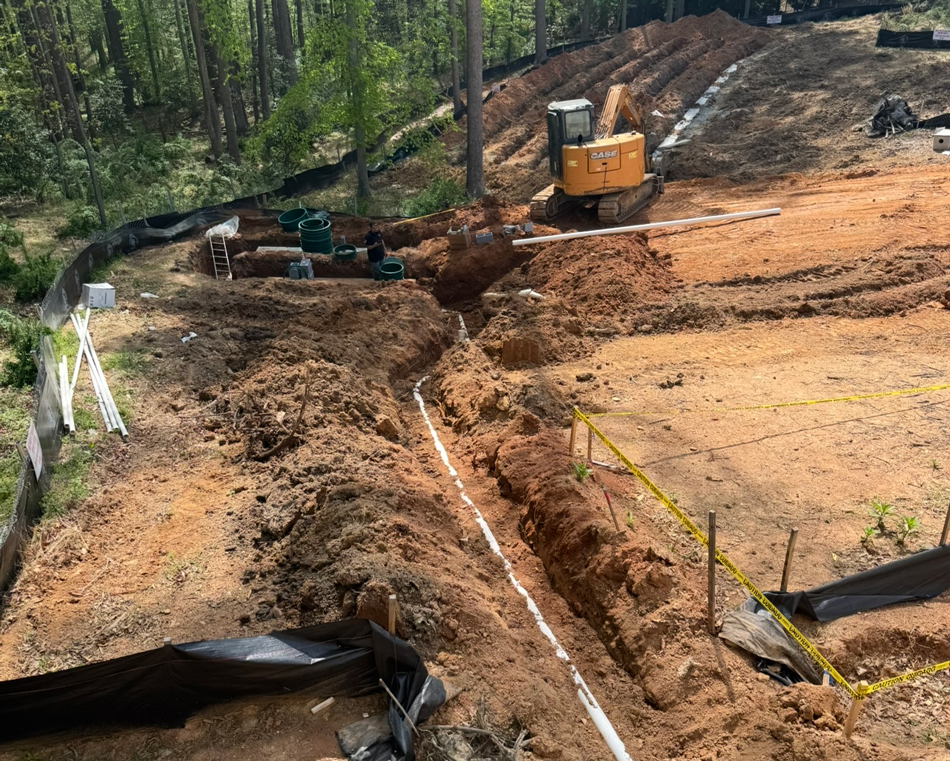What is a Septic System?
Most homeowners in Northern Virginia are familiar with conventional septic systems. They are a reliable way to treat household wastewater using an underground tank and a traditional drain field. But what happens when the land on your property isn’t suitable for a conventional system?
This is where advanced septic systems come in.
Advanced septic systems are a range of technologies designed to overcome challenging site conditions and provide a higher level of wastewater treatment. They are often required by local health departments when a traditional system is not a viable option due to factors like poor soil conditions, shallow bedrock, or a high water table.
Signs Your Property May Need an Advanced System
Even if you’re building on a new lot, a conventional system might not be an option. You might need to consider an alternative if your property has:
- Dense or Clay Soil: This type of soil drains very slowly, causing wastewater to back up.
- Shallow Bedrock: If bedrock is too close to the surface, there isn’t enough soil for proper filtration.
- A High Water Table: Water-saturated soil can prevent wastewater from being absorbed and treated correctly.
- Limited Space: Advanced systems can sometimes be a better fit for smaller or irregularly shaped lots.
Common Types of Advanced Septic Systems
Unlike a one-size-fits-all conventional system, advanced systems are tailored to specific site challenges. Here are some of the most common types:
- Mound Systems: A mound system is an elevated drain field built with a special mixture of sand and gravel. It’s used when the natural soil is not suitable for absorption. Wastewater is pumped into the mound, where the engineered materials provide the necessary purification before the water is absorbed into the ground.
- Chamber Systems: Chamber systems use gravel-less, dome-shaped chambers instead of traditional gravel trenches. These are often used in areas with a high water table or for easier installation in tight spaces.
- Drip Distribution Systems: Ideal for sloping properties, a drip distribution system uses a pump to slowly distribute wastewater through a network of small drip emitters buried just below the surface. This method is highly efficient and can be used on various terrains.
- Aerobic Treatment Units (ATUs): Think of an ATU as a compact, on-site sewage treatment plant. It introduces oxygen into the septic tank to help bacteria break down waste more effectively. The treated effluent is cleaner than with a conventional system, which is ideal for environmentally sensitive areas.
How to Choose the Right Alternative System
Selecting the right advanced system is a complex decision that depends on your specific property’s soil, slope, and size. It requires a detailed site evaluation by a qualified professional.
While researching these systems is a great first step, the best way to determine your needs is to have an expert assess your property. Great Falls Septic Service has extensive experience evaluating land in Northern Virginia and recommending the ideal septic solution that meets all local regulations.
If you have questions about your property’s septic needs or want to know if an alternative system is right for you, contact our team for a professional consultation. We’re here to help you find the perfect fit for your home.


